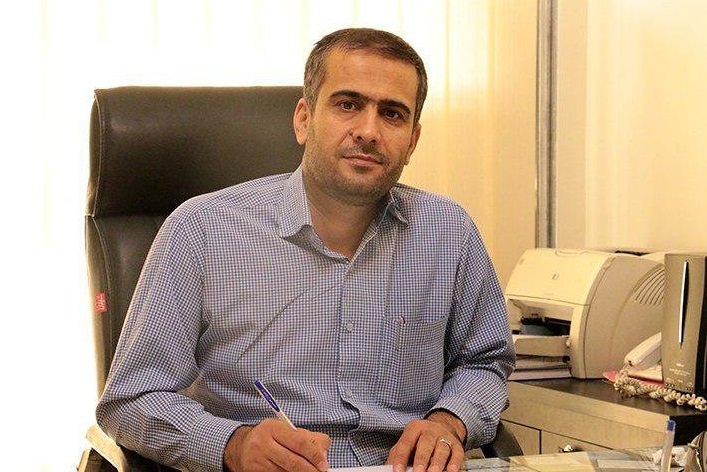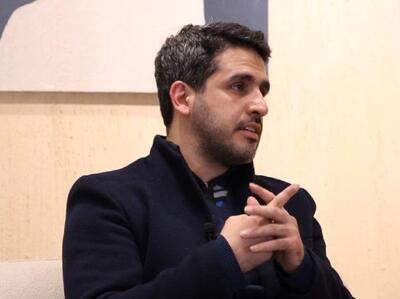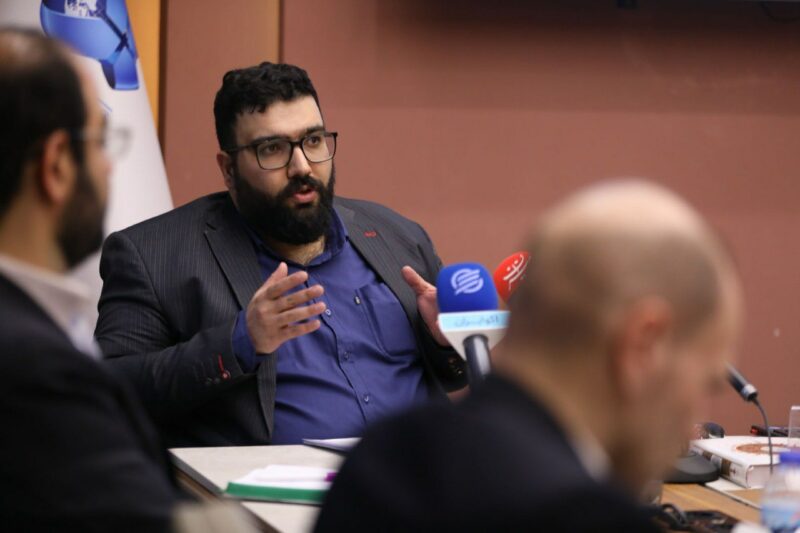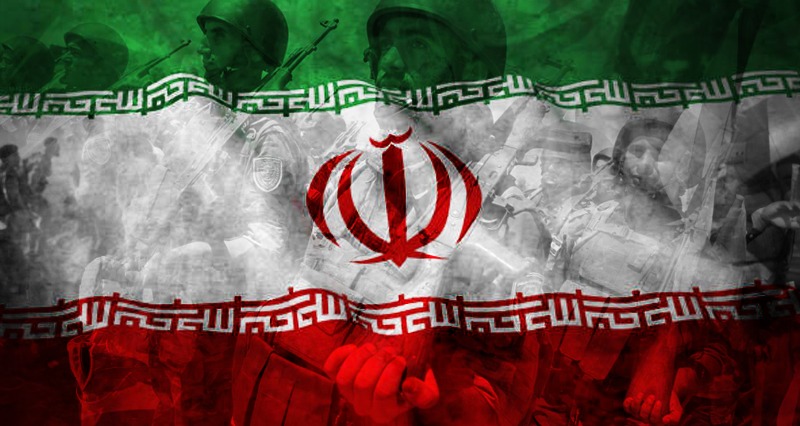The conflict that began in recent days, coinciding with Israel’s aggression against Iran and the assassination of the country’s high-ranking commanders, is still ongoing. It appears that as time passes, the scale of these clashes is increasing, and Iran and Israel may be heading toward a full-scale war. Iran’s performance over the past four days has been noteworthy. On one hand, significant weaknesses are evident in Iran’s operations; on the other hand, Iran’s heavy missile strikes on Israel have introduced a new phase in the country’s missile capabilities and have exposed Israel’s vulnerabilities in the eyes of observers.
United World International has conducted interviews with some Iranian experts in an effort to assess Iranian perspectives on the issue.
Saber Golanbari, a well-known Middle East affairs analyst, believes that regarding the first two days of Israel’s attacks on Iran: “These combined attacks, which relied more heavily on drones, are in some respects not dissimilar to the recent ‘web’ operation by Ukraine on Russian soil. In terms of the assassinations carried out, they also bear similarities to the surprise attacks that were launched on the first day of the Lebanon war against the leaders and senior commanders of Hezbollah. Although Israel has declared the destruction of Iran’s nuclear facilities as the target of the attacks, it seems that in the initial phase of the assaults, the main focus was on striking air defense systems and assassinating nuclear scientists and military commanders, aiming to seriously damage the command-and-control structure of Iran’s armed forces.”

He attributes Iran’s initial setbacks to Trump’s strategic deception: “Regardless of the details of the attacks and Iran’s response, despite clear signs emerging two days prior to Israel’s assaults on Iran indicating the escalation of Israeli aggression, this invasion was the result of a ‘strategic deception’ that Donald Trump pursued in the past two or three months through contradictory, confusing statements and a false but seemingly serious desire for agreement and negotiation. Recently, he also pretended that Israeli attacks were not imminent. It is evident that there was a division of labor between Netanyahu and Trump. Trump’s enthusiasm, his description of the attacks as ‘excellent,’ his threats of even more severe strikes, and his emphasis that Israel’s aggression occurred at the end of his two-month deadline leave no doubt about his and his administration’s role in planning today’s attacks.”
When asked where the situation is heading, whether it will escalate into a full-scale war, and whether Iran’s airspace and territory might resemble the situations in Syria and Lebanon, Golanbari says: “It seems that, for now, everything depends on the level of Iran’s response and the extent to which it can influence Israel’s perception. If Iran’s possible response can alter Israel’s perception, after a short period and some reciprocal attacks, the situation could return to normal. But if this does not happen, the opposing side’s assaults may become continuous and according to their preferences.”
He considers the ongoing war a turning point in the future of the Middle East and adds: “It is evident to all that the future of the Middle East and the formation of a new order in the region are directly linked to the outcome of this conflict between Iran and Israel.”

Alireza Majidi, a well-known Middle East affairs expert recognized for his security analyses of the region, believes that Israel focused on four main objectives in the initial days of its war against Iran. He states:
“The first objective was to target military commanders; a goal Israel began to implement on the very first day of the war. The second objective was to attack nuclear and military centers in such a way that the nuclear sites would be eliminated in the initial phase, and the military centers would be struck to send the message that their continued existence depends on Israel’s will. The third objective was to destroy Iran’s air defense systems, aiming to annihilate all of Iran’s defensive capabilities. The fourth objective was to impair Iran’s offensive capabilities. Israel is fully aware that it cannot completely destroy Iran’s military forces, and fundamentally, the structure of Iran’s military forces is such that even with the elimination of high-ranking commanders, the operational efficiency of the system will not suffer critical damage. Therefore, Israel has focused on rendering these forces passive and incapable of launching attacks. The aim here is to minimize Iran’s missile-launching capabilities. The effective duration of this stage will likely last for about a week, after which Israel will move on to its Plan B.”
He considers Plan B to be an attack on Iran’s infrastructure in a manner that would make life in Iran extremely difficult. In his view, “Israel’s ultimate goal in this war is either to change Iran’s political behavior, to occupy parts of Iranian territory, or to overthrow the ruling political system in Iran. From Israel’s perspective, changing Iran’s political behavior does not carry sufficient credibility, because they believe that, due to Iran’s capabilities, even if Iran apparently accepts to change its behavior, it can secretly continue its old policies behind the scenes. For example, even if Iran agrees to place its nuclear program under American supervision, there is always the possibility that Iran might establish a new, hidden facility elsewhere. Territorial occupation also does not align with Israel’s capacities and capabilities. Therefore, the only feasible and desirable option for Israel is a change of regime.”
Alireza Majidi believes that Israel’s Plan B will aim to put pressure on ordinary people, driving them to revolt against the ruling system in an attempt to bring about regime change. In this phase, Israel will likely try to carry out actions such as damaging electricity and gas infrastructure, striking import and export routes, and other measures that would disrupt daily life and push people towards rebellion against the government. Widespread insecurity and the killing of civilians, in such a way that no one feels safe, will be part of Israel’s plan in this stage.
Regarding what strategy Iran should adopt in such a situation, Majidi said: “Iran has no choice but to make Israel’s security environment so difficult that public pressure forces the Israeli government to seek an end to the war. Israel’s historical experience shows that achieving this will not be possible in less than a week, and Israel is also trying, during this first week, to disable Iran’s ability to exert such pressure. Therefore, Iran is forced to make maximum use of its pressure capabilities within this initial week.”
Aref Dehghandar, an Iranian journalist and analyst specializing in foreign policy, also emphasizes that understanding the political atmosphere after October 2023 is essential to grasp the reasons behind the current war. He states:
“Following the Al-Aqsa Storm operation in October 2023, the equations in the Middle East entered a complex and highly tense phase that paved the way for many developments. The shift from gray-zone warfare to direct confrontation between Iran and Israel was one of the consequences of this event.

The weakening of Hezbollah, the shift in the political balance in Lebanon, and the dismantling of the Tehran–Baghdad–Damascus–Beirut strategic corridor limited Iran’s regional influence and practically reduced Iran’s capacity for effective regional engagement. Simultaneously, Israel, benefiting from significant intelligence superiority over Iran and conducting extensive arms purchases from the United States, prepared itself for direct confrontation with Iran. For months, analysts had predicted the likelihood of escalating clashes between the two sides, especially after Donald Trump came to power in 2025, whose support for Netanyahu paved the way for Israel’s aggressive policies against Iran.
In the midst of Iran-U.S. nuclear negotiations, Israel, with the green light from Washington, launched massive attacks against Iran in the early hours of Friday, effectively initiating a full-scale war that bore no resemblance to the limited, tit-for-tat skirmishes of past Iran-Israel clashes.
Dehghandar evaluates Israel’s objectives in this war against Iran as follows: ‘This Israeli operation, on a broad scale aimed at weakening Iran’s defensive and nuclear capabilities, encompassed a wide range of targets: from military bases and nuclear facilities to the targeted assassination of senior military commanders and nuclear scientists. The scale of the operation was significantly greater than in the past, making Iran’s strategic patience impossible.
The leadership of the Islamic Republic of Iran described this aggression, unlike previous incidents, as the initiation of war, and Iran’s response this time, unlike the limited ‘True Promise 1 and 2’ operations, was broader and more decisive. Iran’s retaliatory attacks over the past few nights on targets in the occupied territories demonstrated Tehran’s ability to respond to Israeli aggression and proved that no point within Israeli territory is beyond the reach of Iranian forces.
It is worth noting that Israel’s multi-layered defense systems, supported by the United States and countries like Jordan, have limited missile penetration; however, Iran still managed to land a significant number of its missiles in sensitive areas of the occupied territories.’
The Iranian foreign policy analyst believes that the role of the United States in this war is central and undeniable. ‘The logistical, military, and diplomatic support from the United States—including the supply of bunker-busting bombs—has practically turned this assault into a Washington-led proxy war against Tehran. Trump has also explicitly admitted that he was aware of Israel’s actions in advance.
U.S. support for Israel is part of Washington’s strategy to pressure Iran into making concessions in the nuclear negotiations, and it seems that the possibility of direct U.S. involvement in the conflict to benefit Israel also exists.’
According to Dehghandar, ‘Beyond the destruction of Iran’s nuclear facilities, Israel is pursuing more ambitious goals such as creating domestic instability, chaos, and even the disintegration of Iran. This is clearly evident from the nature of the attacks and the targeting of residential areas and vital economic and infrastructure assets.’
He believes: ‘This aggression will most likely change Iran’s nuclear strategy and will compel Tehran to reconsider its defensive doctrine. This conflict is likely to last two to three weeks and is unlikely to end within a few days. To prevent the escalation of tensions and maintain its regional credibility, Iran has no choice but to carry out decisive and high-risk attacks. The outcome of this war will not only determine the future of the Middle East but also Iran’s position in its emerging regional order.’
From the perspective of this political analyst, this war has exposed the fragility of the balance of power in the Middle East. Iran, through its responses, has proven its defensive capabilities, but the economic, human, and political costs of this confrontation will be heavy for both sides if the war continues. Whatever the final result, it will leave profound consequences for the regional order.”
Saeb Majdi, a well-known Iranian security and military affairs analyst, in light of the events of the first three days of Israel’s war against Iran, believes that Iran must pursue three main tactics: detecting and dismantling the enemy’s internal network through security and intelligence agencies, strengthening active and passive defense systems, and finally, launching powerful offensive operations as the only effective strategies to confront Israel.
He states: “In addition to the efforts aimed at uncovering and arresting infiltrators within various organizations, especially the armed forces—where several successful arrests have already taken place—extensive efforts are underway to identify individuals collaborating with the regime. These include those who launch attacks, guide them, report intelligence, commit acts of sabotage and terrorism, or provide logistical support. The volume of public reports has increased significantly following widespread public awareness campaigns, and this, along with numerous checkpoints, has contributed to recent successes.
On the other hand, following the damages inflicted on the first day of Israel’s attack on Iran, efforts to restore Iran’s air defense capabilities, particularly in the western regions, are ongoing. Additionally, other passive defense measures, such as dispersing aircraft, continue. The goal is to prevent further damage to sensitive facilities. Such measures could significantly alter the equations—events like the downing of fighter jets and the capture of pilots would dramatically shift the course of the war and deliver a psychological shock to the enemy’s domestic front.
Since yesterday afternoon, it seems the enemy has been surprised by the resurgence of Iran’s air defense and initially attempted to continue its operations through extensive use of drones and unmanned aerial vehicles, followed by deploying fighter jets—both of which suffered significant losses. In parallel, Iran’s efforts to rapidly restore its offensive capabilities are also ongoing. Moreover, preparation for the enemy’s potential next scenarios is critical. For example, according to assessments, the enemy may seek to conduct heliborne operations with U.S. cooperation in specific locations, which is why Israel has targeted some of our ground units in recent attacks.”
Majdi emphasizes that regarding Iran’s offensive tactics against Israel, “It is essential to note that a strong offensive requires at least a minimum level of robust internal defense. This is because the majority of missile attacks rely on mobile launchers, but when the enemy dominates both the air and the ground, any mobile launcher that emerges to fire will inevitably be targeted. This is precisely one of the reasons why the missile launches have been limited so far—the restricted ability to use mobile external launchers and the damage inflicted on forward bases have both contributed to this limitation.”
Majdi highlights Israel’s efforts to draw the United States into the war and states: “The armed forces must deploy a portion of their capabilities now, but the main segment must be reserved for worse-case scenarios, such as direct U.S. involvement. Since last summer, all of Israel’s major achievements have been in collaboration with the United States. This is their consistent operational model: political deception at the White House, field support from CENTCOM, and execution by Mossad and the Israeli Air Force. Currently, it is important to understand that the assertion of ‘U.S. non-involvement in the battle’ could be a trap to control the behavior of the Islamic Republic. Nonetheless, it is clear that a direct confrontation with one enemy is better than facing two enemies. Therefore, we must remain vigilant against false flag operations and fabricated pretexts. Trump may be willing to step into the fire, but will American voters, taxpayers, and society be convinced to support a new war? Certainly, avoiding U.S. involvement is not about refraining from escalation. On the contrary, a portion of the blow intended for CENTCOM must be visibly delivered now and tested on the Zionists.”
Regarding the potential form of U.S. involvement in the war, Majdi explains:
“The most likely scenario is that the U.S. will rely on its naval fleet from various points, particularly the Indian Ocean, and its air force to create a fire wall and defensive belt, while Zionist forces carry out internal operations such as mercenary attacks, terrorist activities, and acts of sabotage. However, Trump’s tweet inviting the people of Iran to evacuate Tehran and mentioning possible cooperation with Israel at this stage seems to be more about psychological warfare and fearmongering among the Iranian public because, over the past few days, the people have not complied with any of Israel’s demands.”
Majdi characterizes Iran’s perspective on the current war as follows:
“It seems that Iran’s current approach is based on the understanding that we are in a short-term war of attrition in which the adversary is using domestic terrorist tools to inflict damage. Therefore, we should not deploy all of our direct military resources (in addition to the technical challenges we face). Instead, by delivering crushing, eye-for-an-eye, and destructive strikes against the regime’s domestic front, we must confront them with irreversible facts on the ground.”

















Leave a Reply